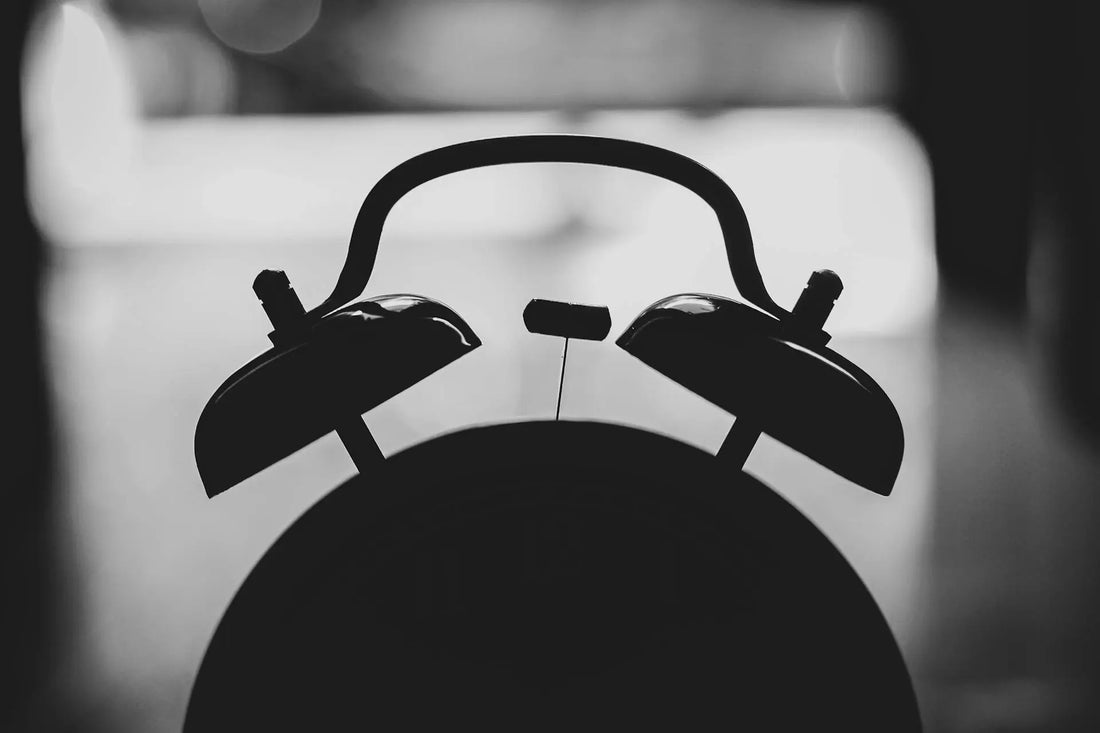
Why do I wake up at 3am?
Waking up at 3 a.m. can leave you feeling miserable and having overwhelming thoughts. Rest assured, you're not alone in this struggle . According to a study on nighttime awakenings and comorbid disorders in the general U.S. population, published in the Journal of Psychiatric Research, more than 35.5% of people wake up in the middle of the night .
Several factors, such as stress, health conditions, and medications, can affect your sleep cycles. Disrupted sleep can leave you feeling tired and yawning during the day , but understanding the cause can help you free yourself from the burden. Whether you wake up for just a few seconds or are unable to fall back to sleep once you wake up, keep reading to diagnose the cause, possible reasons, and what you can do about it .
7 reasons why I always wake up at 3am?
Waking up at 3 am is known as moderate insomnia . It disrupts your sleep pattern and makes it difficult for you to continue sleeping. The cause may be quite harmless if you doze off within a few minutes of waking up. Let’s look at the potential reasons and effective solutions to this puzzling phenomenon .
1. Stress
Stress and anxiety can trigger the sympathetic nervous system and wake you up at 3 a.m. They can activate your body’s fight-or-flight response, making it difficult to stay asleep. Stress can stem from work, relationship, health, or financial concerns . If left unaddressed or unchallenged, intrusive thoughts can wake you up in the middle of the night , or even cause sleep paralysis in severe cases . Even if you’re a heavy sleeper, anxiety from a stressful day can leave you up at night with uncontrollable nausea and anxiety.
2. Insomnia
Insomnia is a very common sleep disorder that involves difficulty falling asleep after waking up during the night. Aging can also contribute to this disorder . It can be difficult to know if your nighttime awakenings are due to occasional stress, a normal bimodal sleep pattern, or serious sleep disorders like insomnia or sleep apnea. Insomnia can be caused by the body suddenly switching from sleep to wake mode. This happens when the heart starts racing, increasing blood pressure and activating the mind due to the switch to flight or fight mode. In short, the body activates in emergency situations, making it harder to return to sleep. Unlike insomnia, sleep apnea has the following symptoms:
- Snoring
- Air suffocation
- Sleepiness during the day
In some cases, your doctor may prescribe medications other than benzodiazepines, such as zolpidem, eszopiclone, or melatonin receptor stimulators, such as ramelteon , to treat insomnia. Sleep apnea is usually treated with a CPAP machine, which allows you to breathe uninterrupted during sleep. However, insomnia is treated by addressing the underlying mental health causes.

3. Aging
Our sleep cycles change as we age , leading to a decrease in sleep quality. Medications and other age-related conditions can further complicate the problem. Additionally, in women, menopause can trigger moderate insomnia due to hormonal imbalances. Discussing these changes with your doctor can help improve your sleep. Seek professional help for diagnosis and treatment .
4. Medications
Some medications, such as antidepressants (amitriptyline, mirtazapine), corticosteroids (betamethasone, methylprednisolone, prednisone), and beta-blockers (acebutolol, atenolol, bisprolol), can disrupt your sleep. Discuss medication alternatives with your healthcare provider. Consider lifestyle changes that promote restful sleep, and talk to your doctor about other options.
5. Underlying health problems
Health conditions such as sleep apnea, GERD, arthritis, restless legs syndrome, depression, neuropathy, enlarged prostate, and menopausal symptoms can disrupt sleep. Consult your doctor for an accurate diagnosis and appropriate treatment options.
6. Environmental factors
A room that is too hot, too cold, too noisy or too bright, an uncomfortable mattress or pillow can easily disrupt your sleep. Invest in a comfortable sleep space and consider using white noise or blackout curtains.
7. Trips to the toilet
Frequent trips to the bathroom can disrupt your sleep, especially if you have trouble falling asleep. Poor eating habits can lead to problems like nocturia, which affects 50 million people in the United States and is a constant need to go to the bathroom due to an overactive bladder.

How to avoid waking up at 3 a.m.?
Sleeping pills aren't always the answer, as there's no single solution to avoiding midnight wake-ups. However, you can improve the quality of your sleep by adopting the following strategies to stop waking up at 3 a.m.:
Make Your Bedroom Comfortable : Create a comfortable sleeping environment. Transform your sleeping environment with blackout curtains, white noise, and comfortable bedding.
Limit caffeine and alcohol : Avoid caffeine in the afternoon and evening, and be careful with your alcohol consumption.
Avoid screens before bed : Turn off your electronic devices at least an hour before bed to minimize disruption from blue light.
Don't go to bed on a full stomach: Finish your last meal at least three hours before going to bed to avoid discomfort and indigestion.
Manage stress and anxiety during the day : Practice mindfulness techniques, exercise, and short walks to reduce stress during the day.
Relax before bed : Make sure you are sufficiently tired before bed. Establish a regular bedtime routine, such as reading, taking a warm bath, or doing light stretches.
Treat yourself to an alarm clock to help you in this adventure: See our alarm clocks

Sleep issues are unique to everyone, so experiment with these strategies to find what works best. If you regularly wake up at 3 a.m. and have trouble falling back to sleep, talk to a healthcare professional . They may recommend a sleep study to better understand your sleep habits and provide appropriate treatments. Additionally, consider keeping a sleep diary or using a sleep tracking app to record your sleep, as this can help identify patterns and potential solutions.
Consult a doctor
If your nighttime awakenings occur every other day, causing sleep disturbances, daytime sleepiness, fatigue, and memory problems, you should see a doctor to get a diagnosis of your condition. Also, if you experience anxiety or difficulty breathing, see a doctor immediately for sleep apnea or insomnia.
Better sleep is important for the body to function properly and for cells to grow and divide normally. You can consult a doctor online , even in the middle of the night, without worrying about appointments or booking in advance, for a consultation from your bedroom.

Conclusion
Understanding why you wake up at 3 a.m. and implementing effective solutions can help you regain control of your sleep habits. By combating stress, optimizing your lifestyle, and creating a comfortable sleep environment, you can look forward to uninterrupted and restful nights . The next time you find yourself wondering why I wake up at 3 a.m. every night, consider getting a quick diagnosis, seeing if there are other symptoms that can help establish a pattern, or consulting a doctor.
FAQ
What is middle of the night insomnia?
If you are wondering, “What does it mean to wake up at 3 am?”, it is called middle-of-the-night insomnia. It occurs due to sleep fragmentation, leading to frequent awakenings in the middle of the night and the inability to sleep soundly. It is often associated with a neurological syndrome called restless legs syndrome or depression.
What should you not do at 3am?
If you wake up in the middle of the night, avoid turning on lights and using a cell phone, as white light signals the brain to wake up by releasing the hormone cortisol, making it harder to fall back asleep. Also avoid drinking caffeine or alcohol.
What happens if you take melatonin every night?
Long-term use of melatonin can do more harm than good. Raising melatonin levels for extended periods of time can reduce the effectiveness and production of natural melatonin in the body. It also comes with side effects such as headaches, nausea, fatigue, etc. that can worsen insomnia.
What organ is linked to waking up at 3 a.m.?
The organ associated with waking up at 3am is the liver. The period between 1am and 3am is when the liver produces new blood and removes toxins from the body. In Chinese qigong, this is referred to as a two-hour period of liver blood purification.






